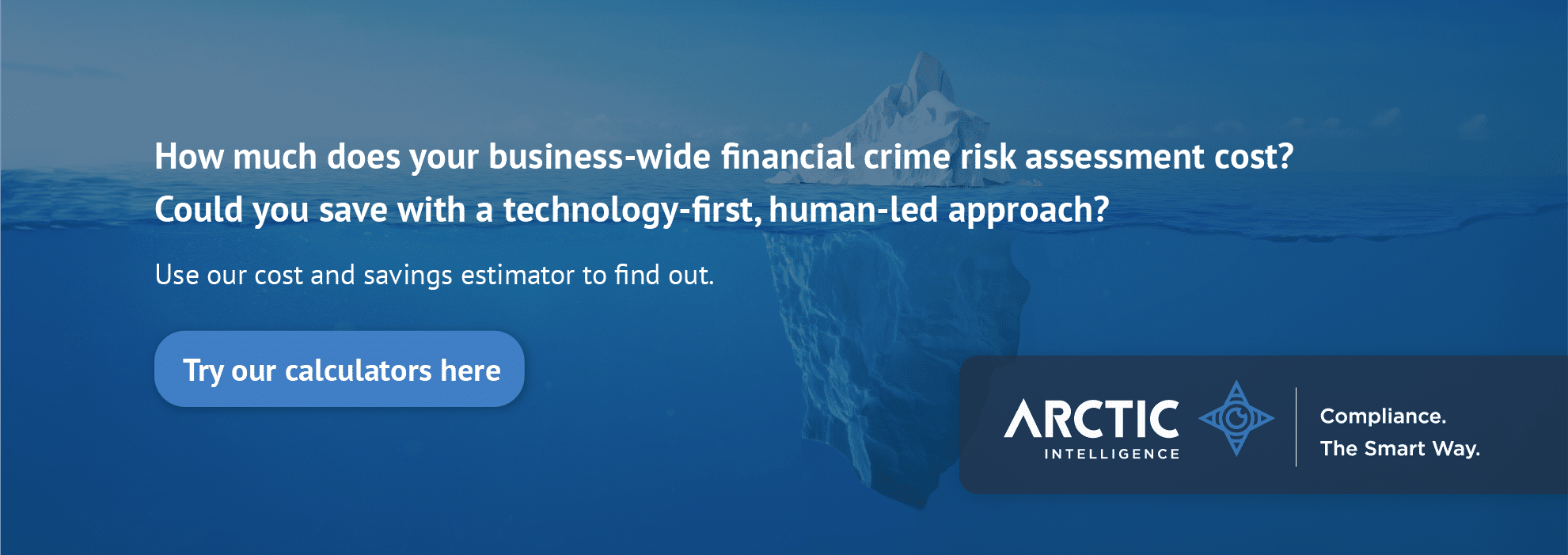Arctic Intelligence responds to proposed AML/CTF reforms
On 20 April 2023, the Attorney General’s Department (AGD) announced a public consultation of proposed reforms to Australia’s anti-money laundering and counter-terrorism financing (AML/CTF) regime. The proposed reforms include extending the existing AML/CTF legislation to capture additional ‘tranche-two’ high risk entities including lawyers, accountants, trust and company service providers, real estate agents and dealers in precious metals and stones.
On 3rd June 2023, ahead of the June 16th deadline for submissions, on behalf of Arctic Intelligence, Anthony Quinn (Founder/CEO) submitted a comprehensive paper outlining his perspective of these proposed reforms and the key points included in the submission are outlined below and urged the AGD to act swiftly on this matter.
“Consecutive Australian Governments have shown a lack of political will since as far back as 2007, making Australia one of only five countries (out of 200) that have repeatedly failed to take action to expand our AML/CTF laws”, Anthony says.
This unwillingness to act has undoubtedly made Australia an attractive destination for organised criminals, with widespread money laundering reportedly costing the Australian economy around AUD$60.1 billion a year according to the Australian Crime Commission.
“In recent years, we’ve seen significant increases in the value and volume of drug importations, rises in drug addiction, gang and domestic-related violence and additional pressure on the emergency services and court systems”, Quinn says.
Simplifying the AML/CTF act
Arctic Intelligence supports simplifying the AML/CTF Act so that rules and guidelines are easier to understand. There are several ways to update the Act to make it easier for organisations to adhere to regulations.
“We’d welcome the use of more prescriptive language to reduce complicated legal jargon, and for the AML/CTF Act to provide more explicit timeframes, so there’s no room for misinterpretation,” Anthony said.
Expansion to gatekeeper professions
According to Quinn, expanding AML/CTF laws to gatekeeper professions such as lawyers, accountants, real estate agents, and trust and company service providers is one of the most significant areas that needs to be addressed. As far back as 2015, the Financial Action Task Force (FATF) in their last Mutual Evaluation Report (MER), heavily criticised the Australian Government for their lack of action, recognising that money laundering can occur through gatekeeper professions.
“At Arctic, we already support lawyers, accounting firms and real-estate firms in countries that have regulated these sectors for years,” says Quinn. He believes it should simply be a matter of bringing Australia into line with international standards.
Extending to high-value goods dealers
Interestingly, dealers in high-value goods are notably absent from the Attorney General’s Department’s consultation paper, which Quinn says is a significant oversight. “It’s surprising given the irrefutable evidence that organised criminals launder criminal proceeds through luxury car dealers, boat dealers, art and antiquities dealers and luxury goods dealers and the extensive paper issued by the AGD’s predecessor, the Department of Home Affairs publishing a detailed paper highlighting the considerable risks high-value goods dealers face from exploitation from organised criminal networks “, he says.
Arctic strongly advocates that the AGD reconsider its position and include high-value goods dealers in the expanded laws. Doing so will show commitment to protecting the integrity of Australia’s financial system, ensure regulations are fit for purpose and also meet the international standards set by the FATF.
“Given how many years Australia is behind compared to international counterparts, we recommend that all industry sectors receive a maximum of 12 months to implement reforms, with the same deadlines set across all sectors,” Quinn says.
Annual risk assessments
Arctic also believes it’s necessary to introduce annual enterprise-wide risk assessments (EWRA) for most businesses and, more frequently, for higher-risk businesses.
“Most businesses face frequent internal and external environmental changes. To meet such a rapid pace of change, risk assessments must be undertaken at least once a year to be effective,” says Quinn.
In his role of founding a business that provides regulatory technology (RegTech) solutions to support global businesses in conducting assessments, Quinn has spoken to hundreds of companies who don’t have the capacity or capability to complete EWRAs meaningfully.
“Not only do many companies not have the right tools to conduct EWRAs and rely on spreadsheets, but many conduct their assessments manually over time, meaning data is outdated before they’ve even completed the assessment. Many businesses also lack the knowledge to develop logical, explainable, and defendable methodologies, often inheriting risk models that aren’t appropriate or easy to understand,” warns Quinn.
Importance of independent reviews
Another significant deficiency in Australia’s current AML/CTF laws is that there is no mandatory minimum requirement for when reporting entities’ AML/CTF Programs are subject to independent reviews. “Independent reviews help assess the design and operational effectiveness of programs, including whether regulated entities comply with the AML/CTF legislation, rules, and guidance,” Quinn states.
AUSTRAC guidelines, for example, let the reporting entity decide when reviews are necessary based on the size and type of business, complexity and ML/TF risk level. “This simply does not go far enough,” says Quinn, who knows of many companies which haven’t completed any independent reviews since the laws were enacted 17 years ago.
“Our specific recommendations is that the laws are more prescriptive and specifically state all businesses must have their AML/CTF Programs independently reviewed at least every two years, or annually for high-risk industries such as casinos, crypto, money remitters and cash-intensive sectors”, Quinn says.
Arctic recommends the review findings be given to AUSTRAC using an online portal, so the regulator can track completion rates within specified timeframes and impose penalties for those entities failing to initiate independent reviews.
An opportunity to improve
According to Quinn, the AGD has a significant opportunity to improve the level of AML/CTF compliance in Australia and address the general level of apathy. “Particularly among gatekeeper professions who overall remain opposed to embracing the AML/CTF reforms, in contrast with the international community, 95% of whom implemented laws for gatekeeper professions years ago”, Quinn says.
Because Australia is so far off step with the international community, with many major financial services and gaming firms experiencing systemic AML/CTF non-compliance, Arctic advocates a “big bang” approach, introducing new laws across all industries simultaneously, with a 12-month implementation period.
“Organised criminals are making billions and are laundering the proceeds of their crimes like drug importations, fraud, human and wildlife trafficking, causing immeasurable social harm to everyday Australians. If the government is serious about financial crime prevention, they’ll introduce these reforms without delay,” says Quinn.
Given minimal progress has been made since the last FATF report in 2015, Australia also runs a real risk of being included on the FATF grey-list, meaning increased monitoring, a formal commitment, and actively working with the FATF to address strategic deficiencies within agreed timeframes to avoid being “black-listed”. If this were to happen the ramifications could be highly detrimental from a reputational perspective, bringing into question the effectiveness of Australia in combating financial crimes like corruption, money laundering, and terror financing.
To read Arctic Intelligence’s full submission to the Attorney General’s Department, click here.
Arctic Intelligence is a multi-award-winning RegTech that specialises in enterprise-wide financial crime risk assessments used by hundreds of companies worldwide who use either the AML Accelerate Platform, designed for small-medium sized businesses or the Risk Assessment Platform, tailored for larger businesses with a fully configurable platform and real-time dashboard reports.
If you’d like to discover more, book your demo today.
Follow us on LinkedIn and Twitter for a daily dose of financial crime news across the globe.



